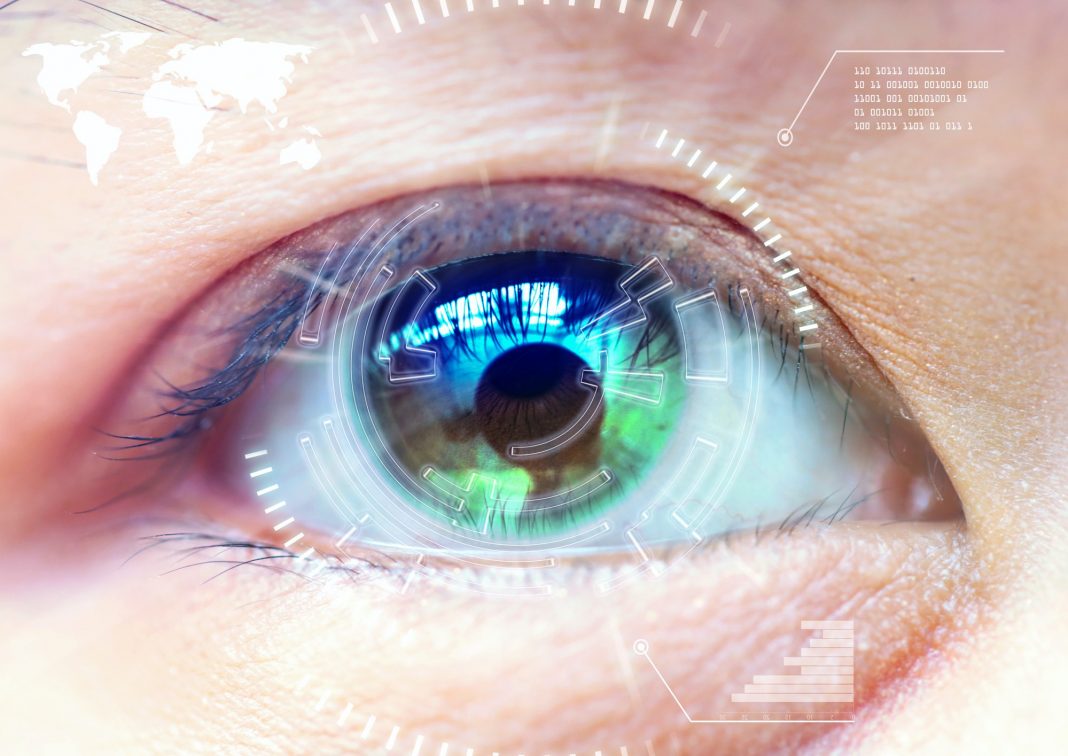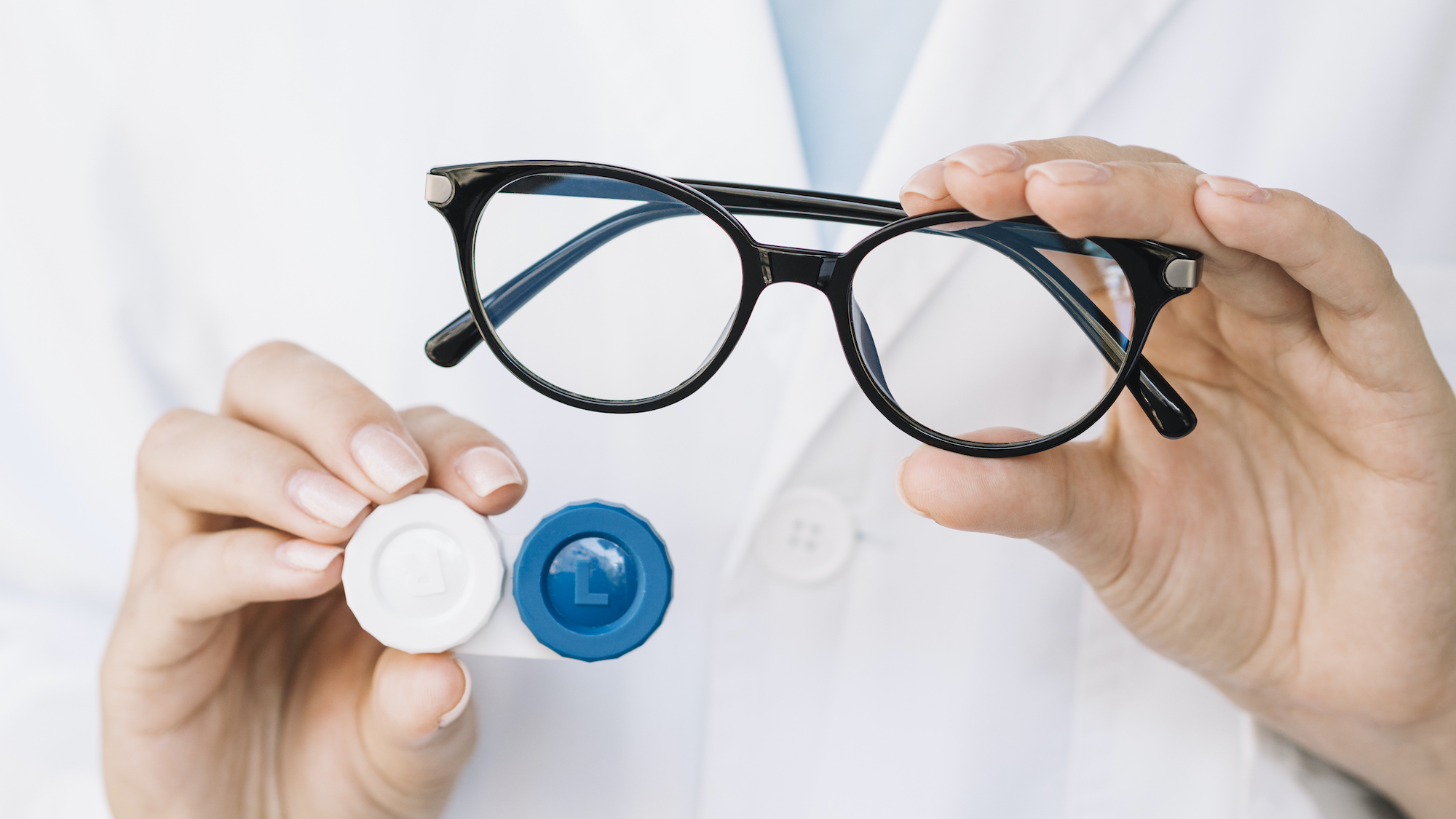Eye care is a necessary part of maintaining your overall health. Chronic health conditions often lead to eye disease or vision loss. Monitoring and protecting your eye health minimizes the effect long-term health conditions can have on your vision. Staying on top of your eye health doesn’t mean you must make sweeping changes to your daily routine. Adding these small changes to your schedule will get you on the right path.
Call an Optometrist
Schedule an annual eye exam with an eye care professional. The optometrist will measure your vision prescription and examine your corneas and retinas. They look for early warning signs of more severe eye diseases, such as glaucoma, cataracts or macular degeneration. These doctors provide your vision correction prescription for contact lenses or eyeglasses.
Collect Your Family History
Reviewing your medical history, as well as your family’s, is a necessary component of your eye appointment. The doctor must understand all personal and familial conditions that may impact your eye health. Be prepared to discuss personal or family history of both eye diseases and chronic conditions, such as migraines, diabetes or high blood pressure.
Wear Contacts Correctly
Pay special attention to the wear instructions that your contact lens specialist provides. They will explain how long you should wear your lenses and how frequently you should replace them. Leaving your contacts in too long can lead to eye infections. Be sure to ask your contact lens specialist for their recommendations for the best contact lens products to clean and sanitize your lenses.
Cover Your Eyes
There are many ways you can damage your eyes, regardless if you wear eyeglasses or contacts. Cornea scratches are the most common eye injury. Chemical burns and objects in the eye are common injuries that irritate your eyes and may lead to infection. You can prevent this type of damage by wearing protective glasses. Also, try not to rub your eyes. Dust from your hands may scratch your cornea.
Wear Sunglasses
Sunburns aren’t limited to your skin; they can also damage your eyes. Quality sunglasses reduce glare and protect your eyes from damaging ultraviolet rays. Choose sunglasses with 100% protection against both UVA and UVB radiation. Unprotected eyes are more susceptible to cancer or accelerated development of cataracts. Polarized lenses help minimize glare, especially in winter when the sun reflects off the snow. Encourage your children to develop the habit of wearing sunglasses when they go outside.
Prevent Sports Injury
Participating in sports can lead to eye injuries. Your optometrist should ask questions about your lifestyle to determine the best eye protection. While most sports require eye protection, each sport requires a different type of eyeglasses, face shield or goggles. Shatter-proof lenses protect your eyes if the lenses break. Face shields protect the bones around your eyes from breaking if someone or something hits your face.
Stop Smoking
Everyone knows the effects smoking has on the body. Nicotine, both smoking and vaping, can reduce retinal activity and constrict the pupils. The American Optometric Association reports that smokers are four times more likely to develop macular degeneration. In addition, the chemicals in vaping liquids have not been studied for their long-term effects on the eyes.
Take a Break
Eye strain is commonly ignored and brushed off as working too hard or experiencing fatigue. Focusing on something for a long time, driving long distances or working in a dry environment causes eye strain. Here are common symptoms to look for:
- Unable to keep your eyes open
- Double vision
- Light sensitivity
- Dry, irritated eyes
If you experience any of these symptoms, take a break every 20 minutes to look away from your project for 20 seconds and force yourself to blink.
Prepare for Pregnancy
Let your eye care provider know if you are pregnant or planning to become pregnant. Hormonal changes may lead to blurry vision, increased eye floaters or bright eye flashes. While these symptoms are usually temporary, contact your healthcare provider if you experience them. These can be early signs of gestational diabetes or high blood pressure.
Get a Physical
Schedule your annual physical with your primary care provider. They can help you manage conditions that may impact your vision. Your primary care physician can also suggest positive health maintenance strategies. These habits may include taking a daily vitamin, increasing your activity level or managing your stress.
Eye care is just as important as an annual physical, consistent exercise or scheduled self-care. These small changes to your routine can protect your eyes from long-term damage.








